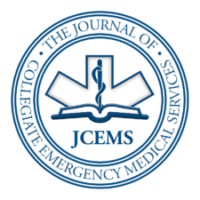1 POSTS
Howard E. Huth, III, BA, EMT-P, CIC is the Director of the SUNY Cobleskill Paramedic Program and a member of the NYS DOH Bureau of EMS Regional Faculty. Howard got his start in EMS on the State University of New York at Albany campus in 1996 with Five Quad Volunteer Ambulance Service, later serving as UAlbany’s first EMS Liaison. In his twenty-plus year career in EMS, Howard has provided patient care in rural, suburban and urban environments, held leadership roles in various volunteer and career EMS agencies and has served on numerous state and regional educational committees. A Life Member of Western Turnpike Rescue Squad in Guilderland, New York, Howard remains active in the field as a paramedic with the Albany County Sheriff’s Office EMS Division while constantly encouraging the development of professional, ethical and compassionate EMS providers.






